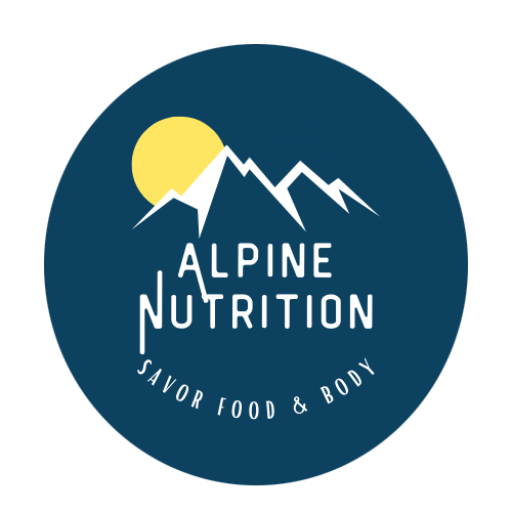Back in the day, it never crossed my mind that fixating on ‘healthy’ eating could negatively impact someone. The cultural recommendation to eat nutritious foods and avoid added sugars and processed foods seemed logical to me. I later discovered that when taken to the extreme, this fixation can cause WAY more harm than good.

My Dad was an amateur bodybuilder during my teen years, and I remember all the stacked protein and muscle building supplements lined up on the kitchen counter – right next to the blender and juicer.
He followed strict rules about what to eat, what not to eat, and a grueling gym schedule. I didn’t see him much during this time, and I didn’t think anything of it because I was enjoying time with friends. I thought he was doing what he needed to ‘be healthy’.
This fixation or obsession with the desire to eat righteously is called orthorexia. The term orthorexia was coined in 1997 by Dr. Steve Bratman. Orthos in Greek means “right” or correct. To this day neither the American Psychiatric Association nor the DSM-5 (manual for medical diagnosis) recognizes orthorexia as a clinical diagnosis. However, an overwhelming amount of medical and mental health professionals continue to witness the increase of this righteous mindset among their patients and clients.
I doubt my Dad would’ve been clinically assessed for orthorexia back in the day, but I can definitely relate his behavior to some of the warning signs for the condition including…
- Compulsively checking ingredient lists and nutritional labels
- An increase in concern about the health of ingredients
- Cutting out whole food groups (all sugar, all carbs, all dairy, all meat, all animal products)
- An inability to eat anything but a narrow group of foods that are deemed ‘healthy’ or ‘pure’
- Unusual interest and criticism of what others are eating
- Agonizing over what food might be served at upcoming events or when going out to eat
- Showing high levels of distress when ‘safe’ or ‘healthy’ foods aren’t available
- Obsessive following of food and ‘healthy lifestyle’ blogs on Twitter and Instagram
- Body image concerns may or may not be present
There are many examples of when compulsive healthy eating isn’t a good thing. Like eating too many carrots and the excessive amounts of carotene turning your skin orange. Similarly, drinking too much water while avoiding salty foods (because you’re warned that salty foods cause high blood pressure) causes your body to become hyponatremic (too low in sodium). You could unintentionally put your body at risk for seizures or even heart failure.

Healthy-not-so-healthy behaviors and thoughts can have an impact on your overall well-being and quality of life.
In 2014, a popular vegan blogger announced that she was suffering from orthorexia nervosa and admitted she was obsessed with purity and health. She received tremendous backlash from the vegan community as she began to incorporate meat back into her life. She continued to move forward with the transition to support her overall well-being. Her therapist stated that “the label is what’s so unhealthy for the mind”.
Diagnosing and treatment in the works
In the scientific community, there are ongoing discussions on whether orthorexia is considered a mental disorder. However, research on this topic seems to grow every year. Signs like not being able to enjoy food, maintaining rules about good versus bad food, obsession with health-related blogs, articles, social media accounts, and cooking for others but not eating the foods yourself are just some of the common orthorexic behaviors medical professionals continue to identify in an increasing amount of their patients.
If you can relate to any of these thoughts and behaviors around food and your body, you’re DEFINITELY not alone. And you don’t deserve to live your life with such restrictions.
Start breaking free by downloading the FREE Thrive Guide. Packed with action-packed tools, this guide will change the way you think about food and your body. You’ll also get access to the monthly Alpine Nutrition Insider’s Newsletter for additional tips, resources, and recipes.
References:
National Eating Disorders Association website (2018). Orthorexia. Retrieved from https://www.nationaleatingdisorders.org/learn/by-eating-disorder/other/orthorexia
Harrison, C. (2019). Anti-Diet: Reclaiming your time, money, well-being and happiness through intuitive eating. Great Britain, UK: Yellow Kite. ISBN 9781529381177
Langmuir, M. (2015). What happens when clean eating turns into an obsession? Retrieved from https://www.elle.com/culture/travel-food/a31411/feeding-frenzy/
Margo, M., & Kelly, J. (2016). Pursing perfection. New York, NY: Routledge. ISBN-13: 978-1138890725
Ross Arguedas, A. A. (2020). “Can naughty be healthy?”: Healthism and its discontents in news coverage of orthorexia nervosa. Social Science & Medicine, 246.




